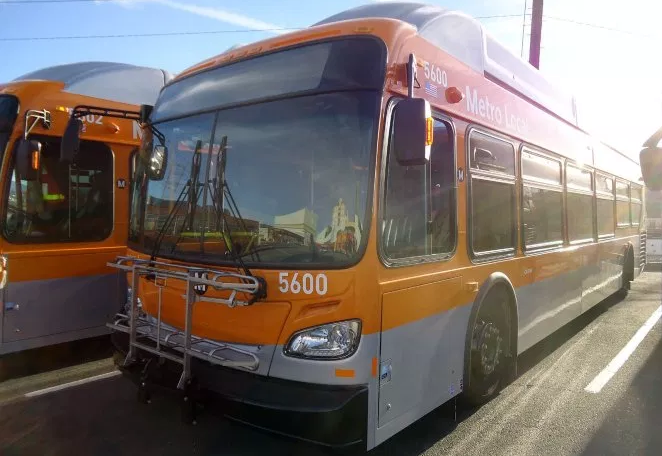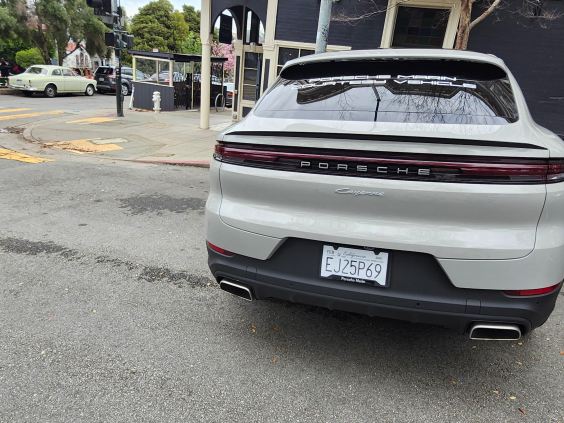Los Angeles is grappling with the COVID-19 pandemic while confronting pervasive racial inequality. Improving health care access, reducing educational inequality, and police reform are rightfully at the forefront of current debates. But we also must address transportation equity. People need to get to work, healthcare, and schools, and unequal access is a major inequity in our region. Public transit in particular is one of our most important social services and we must make it fairer.
Car owners get around far more easily than those who are carless and a large proportion of L.A. Metro’s travelers have no auto access. In the US, just 4% of non-Hispanic white households own no cars, but 8% of Hispanic and 14% of Black households are carless. Nearly half of all transit trips nationwide are made by members of carless households; in Los Angeles and Orange Counties fully 61% of people who use public transit have no cars available.
When the pandemic struck, freeway and street traffic decreased because stores and restaurants closed and many middle- and upper-income workers could work at home. Rail ridership decreased more than bus ridership because rail riders are more likely to have cars available as alternatives. Bus travel fell less because bus riders tend to have fewer travel options, are less likely to work from home, and more likely to make essential trips to work on transit. People of color and those from low-income households are more likely than others to depend on transit to get to healthcare, schools, and jobs. Equity demands improving transit service where they live.
Los Angeles County voters have approved four separate half-cent sales tax increases since 1980. Sales tax revenue provides most of Metro’s budget, complementing fares and state and federal funds. To achieve required two-thirds majorities at the polls, there were popular transportation construction projects in all parts of the County on each ballot. L.A. County voters, most of whom rarely ride Metro, voted for a regional rail system, and Metro is working hard to build what was promised.
But COVID-19 has changed things. Sales tax revenue is down by a third, and L.A. Metro is reeling from this revenue loss. The most equitable short-term recovery plan would have Metro maintain and, as needed, expand its basic bus service where most carless families live. This is needed right now to safely get lower-wage, essential workers to their jobs. While traffic is low, bus service can be improved quickly and at low cost – by turning curb lanes on some major streets into bus-only lanes.
L.A. Metro has added service as ridership gradually increased since April but will find paying for socially-distanced transit service an increasing challenge as revenue shortfalls continue. Keeping essential service running with less funding will force hard decisions, including postponing, or even canceling, some planned rail and road construction projects. Metro is aiming for 28 new projects before the 2028 Olympics (“28 by 28”), but may have to settle for completing projects already well underway and delaying others until after the Olympics (perhaps “20 by 28”).
Elected officials will likely oppose delaying projects in their districts to keep buses running in lower-income communities elsewhere. But the sales taxes that pay for transit are regressive – lower-income people pay more of their income in sales taxes than do higher-income people. The bottom 20% of California households by income pay almost 7% of their income in sales taxes, while those in the top 1% pay less than 1%. Even if bus fares were free, as recently proposed by some, this higher taxation of the poor would remain. Fairness demands maintaining and expanding service in communities where people own the fewest cars and disproportionately pay sales taxes.
Elected officials may also argue for pushing ahead with planned rail and highway projects because construction creates jobs. But it takes years to get big new projects started, while funding expanded transit operations maintains and grows employment locally and almost immediately. Transportation workers are disproportionately people of color. African-Americans constitute 13% of all American workers, but 27% of bus drivers are Black, as are many mechanics and maintenance workers. Transit work provides stable unionized jobs with health and retirement benefits. Prioritizing better bus service today would be fairer to those who most need transit, and will maintain good jobs as well.
Martin Wachs was the founding Director and Brian Taylor is the current Director of UCLA’s Institute of Transportation Studies






